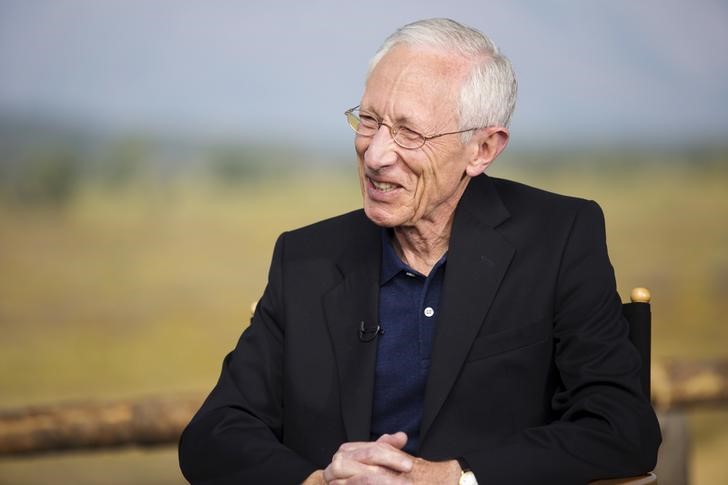By Jonathan Spicer
NEW YORK (Reuters) - The Federal Reserve's second-in-command was the latest to wade into a post-election debate over what policies the new U.S. government should pursue, saying on Monday spending and other efforts to boost sluggish productivity could help reduce the Fed's burden of supporting the economy.
Fed Vice Chair Stanley Fischer, addressing a scatter-shot of questions on what the election means for the U.S. central bank, said the dollar's recent rise would not blind the Fed to its policy goals and he reiterated a long-held plan to trim the Fed's swollen balance sheet gradually over time.
Noting there remained "enormous uncertainty" over what direction president-elect Donald Trump and the Republican-controlled Congress would take the country, Fischer warned against "inviting further trouble" by eliminating some of the so-called Dodd-Frank financial regulations.
Yet "certain fiscal policies, particularly those that increase productivity, can increase the potential of the economy and help confront some of our longer-term economic challenges," said Fischer, the soft-spoken deputy to Fed Chair Janet Yellen.
"Some combination of improved public infrastructure, better education, more encouragement for private investment, and more effective regulation all likely have a role to play in promoting faster growth of productivity and living standards," he said at the Council on Foreign Relations.
Fischer's remarks come nearly two weeks after Americans shocked pollsters by electing Trump, who campaigned on a populist Republican platform of infrastructure spending, tax cuts, slashed regulations, and renegotiated or canceled international trade pacts.
The U.S. economy, eight years after the worst of the recession, is now in "the vicinity" of the U.S. central bank's employment and inflation goals, Fischer said, adding it was performing "reasonably well."
We "can't allow ourselves" to forget the 2007-2009 financial crisis, he said when asked about Trump's promise to roll back Dodd-Frank, the landmark 2010 law that reduced the economy's reliance on banks by forcing them to hold more capital, among other measures.
After seven years of near-zero interest rates and some $3.5 trillion in stimulative bond purchases, the Fed last December raised interest rates a notch. Fischer's comments bolstered the high expectations that the Fed will tighten policy again next month.
He said fiscal adjustments could backstop these years of accommodative monetary policy, and he endorsed economist Mohamed El-Erian's description in his book of the Fed as almost the "only game in town."
"There has been some appreciation of the dollar" since the election, Fischer said, noting that trade-weighted index measures are affected by the "significant devaluation" of the Mexican peso.

"To the extent that exchange-rate changes affect employment (it is) potentially quite important but not the only thing that happens," he said. "It won't stop us from doing what we should do on the basis of inflation and unemployment in the domestic economy."